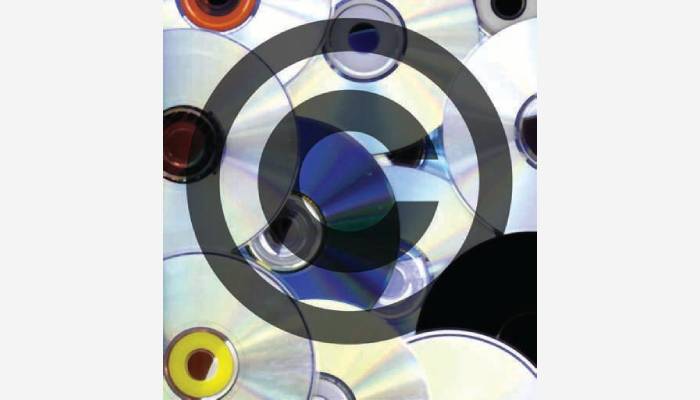
or

Copyright (Amendment) Act, 2012 (‘Amendment’) has brought about many significant changes in the Copyright Act, 1957 (‘Act’) with a purpose to change the way business in copyright, and more importantly, media and entertainment industry is carried out. Of many issues the issue of “efficient access” of content by broadcasting platforms (satellite television, radio stations and internet websites) has been addressed by bringing in a regime of statutory licensing. Addressing another important issue of infringement on the Internet, the Amendment brings in provisions to protect intermediaries who are involved in transient and incidental storage of copyrighted content. While the Copyright Rules are yet to be finalized, this comment evaluates the impact of two core issues of concern.
The long standing dispute between the FM Radio Broadcast Industry with copyright owners which has still not attained finality after 10 years of litigation perhaps has compelled to provide for a regime of Statutory Licensing”in order to facilitate efficient access by the broadcaster. The new section 31D in the Act provides for a “statutory license” for performance of any (underlying) literary work, musical work or a sound recording which have already been published for the benefit of Broadcasting organizations. Proposed Rules 40 to 42 have been framed in this regard. Now a broadcasting organization can apply to the Copyright Board under this provision and seek license to broadcast directly under from the Copyright Board as per the royalty rate card (to be fixed by the board) in this regard without actually entering into negotiations with copyright owners. However, such application has to be moved 15 days in advance of such intended broadcast indentifying the work and along with payments to the copyright owner.
From an access point of view it does make the process cost effective and efficient. However, there are concerns of the Copyright Owners which needs to be addressed:
While the broadcasting industry is thrilled, one really needs to examine the utility of such a Statutory License.
The menace of piracy and unauthorized sharing of copyrighted work on the Internet is the biggest leakage of revenues and is perceived to be the biggest threat to the Industry today. The scale of piracy after the proposed digitization of India by 2015 will be unprecedented and unbearable. Liability of intermediary (like websites, ISPs etc) is governed by the Information Technology Act, 2000. With amendments to Information Technology Act which were notified in October 2009 the protection from liability to such intermediaries were expanded (Section 79 of the IT Act). However, it was further provided that such protection would not mitigate liability under the Patents Act and Copyright Act (see section 81 of the IT Act). Amendment brings in insertions to section 52 to mitigate the liability of certain intermediaries. Rule 74 of the proposed rules has been framed in this regard.
From a strict liability regime, the tables have turned to favour the intermediaries. If one has to go by the proposed Rules in this regard, any notice of such infringement by the owner must not only be loaded with details of work, evidence of ownership, details of place of storage of infringing copy, evidence that copyright being stored is an infringing copy”, but above all also show that no defence is available to such intermediary under the scheme of the Act. It is the general rule of law that whoever desires to benefit from an exception, has to prove that he is entitled to it. However, the proposed Rules require the Copyright Owner to show how such intermediary is not entitled to any of the exceptions in the Act or otherwise. Still further, once the intermediary is notified of infringement by the Owner it is obligated remove the infringing content but for 21 days only, and if within 21 days the Owner does not file a civil suit and get an order of restrain in his favour the proposed Rules mandate the intermediary to restore access.
Today, the Entertainment Industry is bleeding from rampant and unprecedented scale of copyright infringement and is struggling to find viable and sustainable platforms and business models, especially around the broadcasting networks, mobile and digital platforms and the Internet. A proper understanding of the new technology and emerging ecosystem is sine qua non towards making an efficient legal regime that protects copyright and its underlying objective of providing incentive to create. The Amendment of 2012 and proposed Copyright Rules 2012 may still require another thought if they are to ensure a fair and equitable environment and ensure sustainable growth.
Mr. Ajatshatru was called to the bar in 2004 and started his career in litigation. Mr. Ajatshatru has been practising Media & Entertainment law since more than 5 years and was a key legal consultant for India’s leading Entertainment Company. Mr. Ajatshatru leads Anand and Anand’s Litigation and Entertainment Law practice in Mumbai and advises several authors, composers, performers and corporate entities in the Entertainment Industry.

Lex Witness Bureau

Lex Witness Bureau

For over 10 years, since its inception in 2009 as a monthly, Lex Witness has become India’s most credible platform for the legal luminaries to opine, comment and share their views. more...
Connect Us:


The Grand Masters - A Corporate Counsel Legal Best Practices Summit Series
www.grandmasters.in | 8 Years & Counting
The Real Estate & Construction Legal Summit
www.rcls.in | 8 Years & Counting
The Information Technology Legal Summit
www.itlegalsummit.com | 8 Years & Counting
The Banking & Finance Legal Summit
www.bfls.in | 8 Years & Counting
The Media, Advertising and Entertainment Legal Summit
www.maels.in | 8 Years & Counting
The Pharma Legal & Compliance Summit
www.plcs.co.in | 8 Years & Counting
We at Lex Witness strategically assist firms in reaching out to the relevant audience sets through various knowledge sharing initiatives. Here are some more info decks for you to know us better.
Copyright © 2020 Lex Witness - India's 1st Magazine on Legal & Corporate Affairs Rights of Admission Reserved